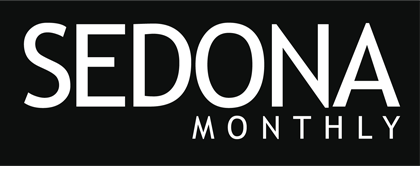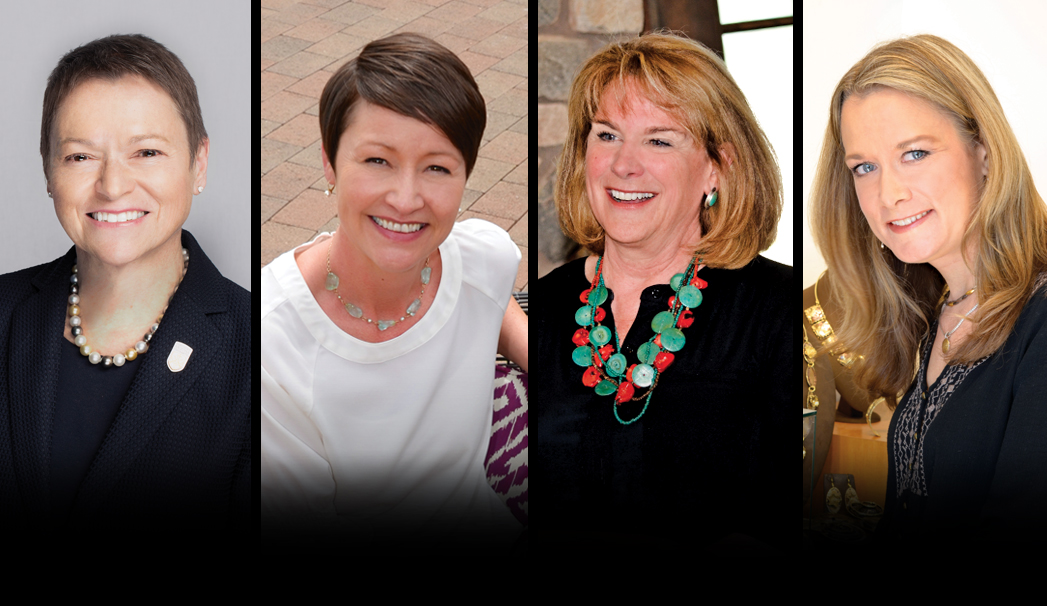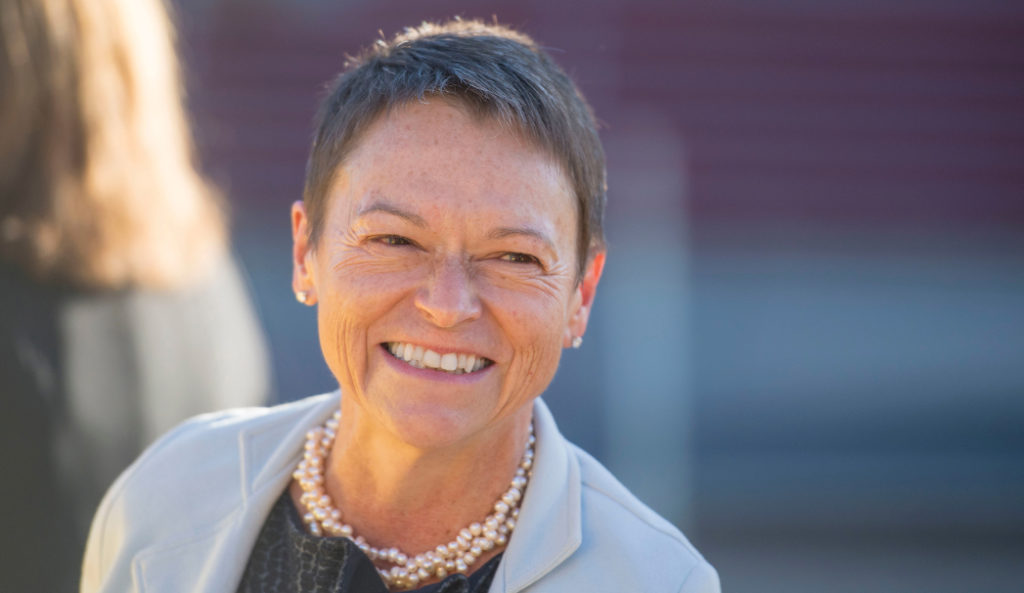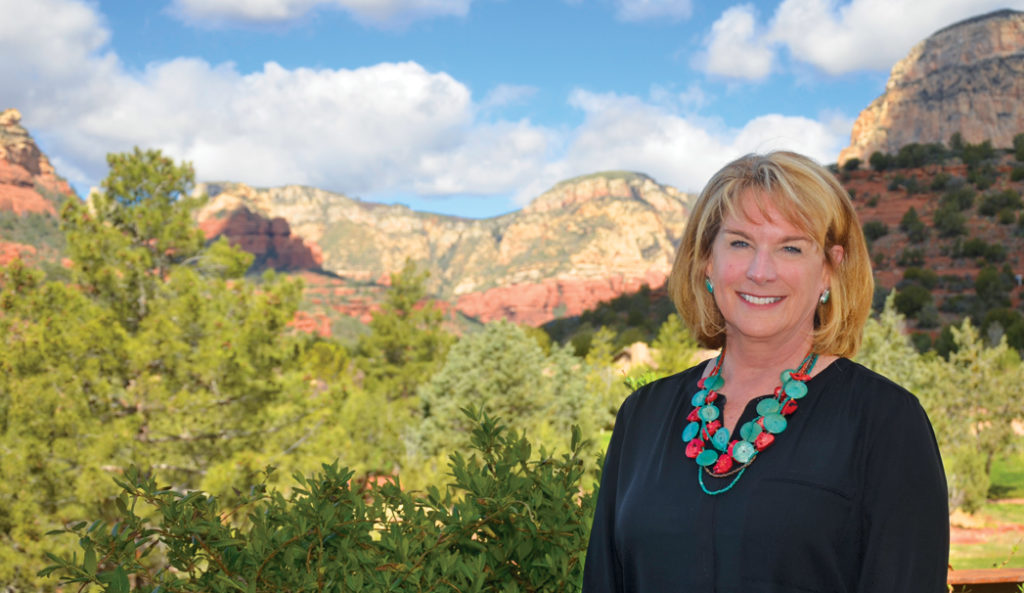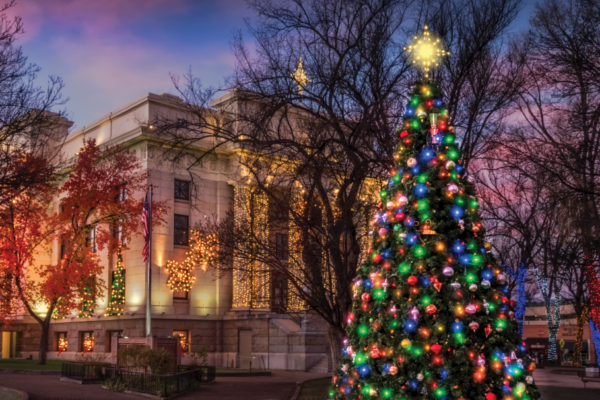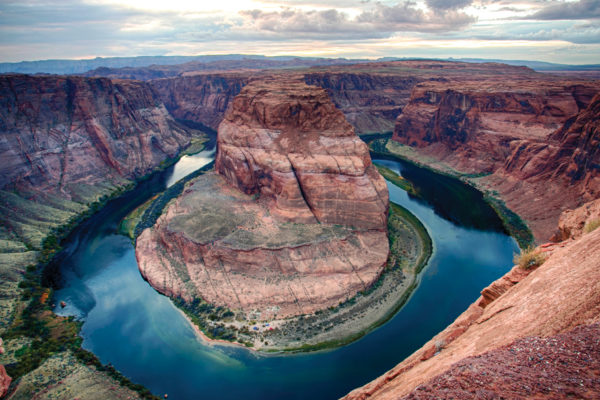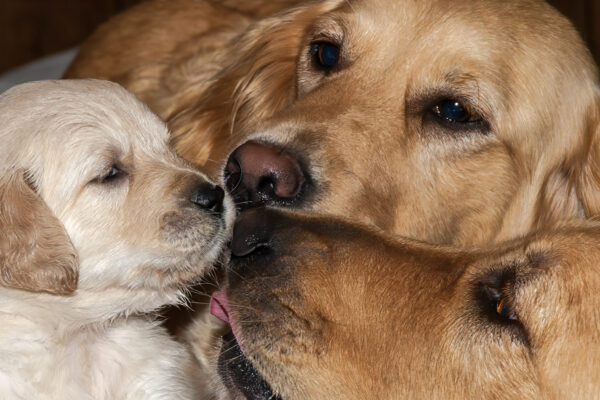PRESIDENT RITA CHENG
NORTHERN ARIZONA UNIVERSITY
Rita Cheng grew up in a rural town of Elmwood, Wisconsin. She was the daughter of a farmer and a schoolteacher. As a child, she learned the value of hard work, running a business and how to adapt to changing situations. She was taught that education was the key to success. Today, Rita Cheng is president of Northern Arizona University, a $625 million higher education organization that is a major contributor to Arizona’s economy. She spoke about work-life balance and her drive to surpass excellence.
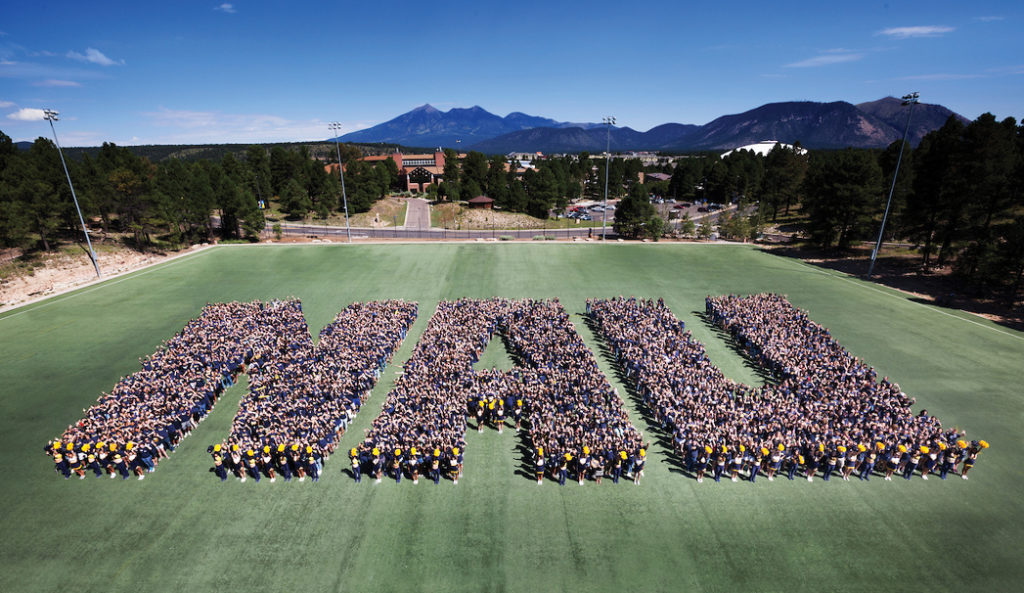
What values did you learn from growing up on a farm?
I was the oldest of six children. My father operated a dairy farm and was focused on keeping the books, managing cash flow, watching the price of the crops, cattle and pigs. I got a sense that there were returns on hard work. My mother had a two-year associate degree and taught for seven years in a one-room schoolhouse before she got married. In those days, women couldn’t teach if they got married so she took care of the family. Education was always important to her. We needed to balance our schoolwork with the chores on the farm. Looking back it was a simpler life but it was clearly a balance of understanding the operations of a small business and knowing that education was the key to success for all the children.
Do you feel that being the oldest in your family contributed to your leadership skills at a young age?
Possibly. The oldest child does step out to do things that are new and different for the family. My parents believed in the importance of hard work. Growing up, I learned that there are some things that you can control and others that you just need to adjust and work differently in different situations. I grew up in a small town where people depended on one another and helping others was important. Those are values that have stayed with me.
What do you find most difficult in your career?
Trying to find that balance. I think that it’s the hardest part. Not many people become a university president − so I understand that and I value the opportunity, but at times the days are really long and the time away from family can be stressful. At NAU, we have 31,000 students, families that are stakeholders, donors, employees, faculty, staff, the community − there are a lot of people who have an interest in and a stake in the success of the university − so all that juggling and finding the time for all the stakeholders is a challenge. But it comes together when you see the success of the institution and the success of others.
When you reach a level of success or an accomplishment, does that drive you to do more?
Oh yes! Leading by example, empowering those around me and watching them grow. That’s a great motivator as well as the opportunity to move the institution to further excellence. NAU was already a great institution when I took the presidency. My task is to be a good steward and also to challenge and find the right balance moving everyone to further excellence.
As a woman did you find it more challenging to come up in the ranks?
Yes. I never felt very strategic about this, but I always felt that I needed to work harder, work longer hours, put in more effort − and that was intrinsic to me. I’m not sure that it had to be that way but I approached my career and all the various steps along the way with a great deal of focus and effort. I felt I needed to do that in order for people to take me seriously. I am 4 [feet], 11 [inches tall] and I am a woman. Years ago, there were few women in the school of business; there were fewer tenured women and fewer administrators. I wasn’t thinking of going into higher administration. It is something that just happened.
Did you ever dream you would be president of a university?
Never! I had the good fortune of being asked to take on additional responsibilities, lead committees, take on tasks that gave me the opportunity to learn more about universities. I had great leaders around me who supported me. I was always striving for the next level of excellence. I watched other leaders and began to learn there wasn’t one stereotype of a leader. I found out that there isn’t something so mystical about it. But it took a long time before I even thought about a leadership position.
It seems that other people saw your potential and encouraged you to move further and grow into higher positions of leadership − did you feel that you wanted to succeed because you didn’t want to let them down or did you succeed because of your own internal drive?
I think I had a lot of internal drive that I did not recognize. I had people around me that saw potential in me. My husband often told me “you could do that” or “yes, you should consider that position.” My mother was my role model. She was unflappable and took on lots of challenges. I learned about the values of strength, faith, giving to others and unconditional love. I came from a small town with modest roots. I wasn’t sure how to navigate in a more sophisticated world – so all of those things swirled around in my head but here I am.
Why is leaving a legacy so important to you?
We are put in the world to do something. I feel that I am in a role where people depend on me so I need to do a really good job. My goals are to continually align the needs of the students so that they thrive and go on to have successful careers. That’s important – otherwise you just fly through life and I don’t believe that’s what we are put on earth to do. I encourage students to look for their next step in unexpected places and to get as much experience as possible. Working hard and focusing on the job that they are given, not a job that they are dreaming of later. Success is a combination of preparation and opportunity – so seize the opportunity but don’t fall down on the job you are doing. I also tell women don’t expect perfect work-life balance everyday but to enjoy the time with their families and create their own definition based on what their quality of life requires.
What advice do you give to young adults today?
I ask: Are you persisting? Are you adapting? Are you exceeding expected outcomes? Are you completely committed to creating that opportunity for yourself and others? Are you willing to take that step to that uncomfortable place? Even if you feel you are not ready − at some point you have to take the next step. When I pause and reflect, I really am focused on doing the work. I am committed to helping other people in their careers, particularly women. I do it naturally. It’s a huge responsibility and it’s a job that I love. It doesn’t seem like a job − it’s something I enjoy doing everyday.
What are your goals for NAU?
My goals are to ensure that NAU will always be a school of choice for students of Arizona and the west. We are today, but as the environment changes, the needs of employment change, NAU has to adapt. I want to make sure we have the very best programs that are recognized for their quality so students will choose NAU for their education. I am finishing my fifth year at NAU and negotiating to continue to 2022. So I would like to stay on for a while – I have a lot more work to do!
What is your favorite quote?
Right now, it’s Dr. Seuss’ Oh, The Places You’ll Go! ‘Today is your day! Your mountain is waiting, so…get on your way!’
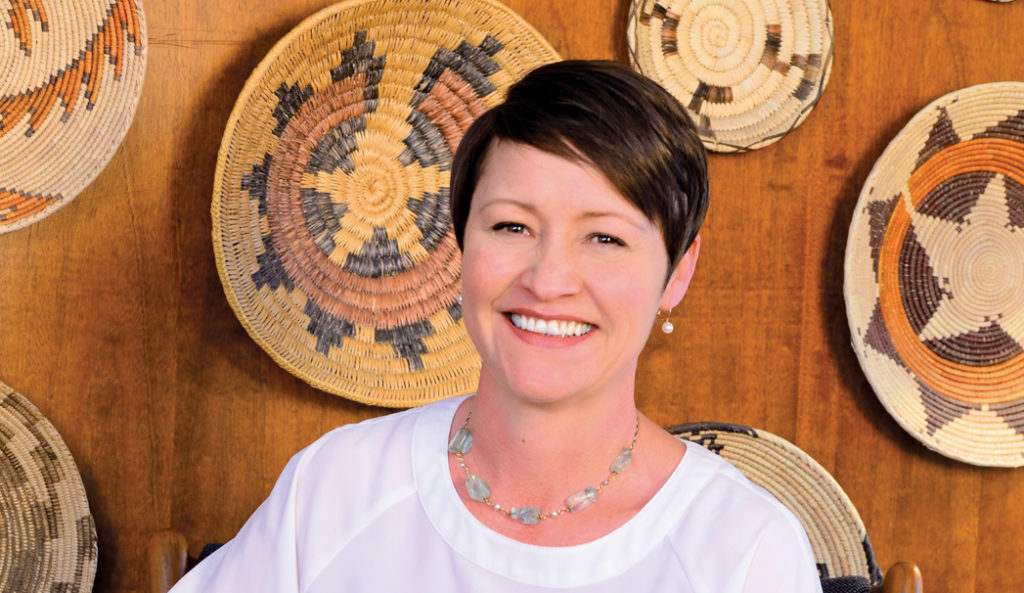
TARA CLINE
GENERAL MANAGER OF AMARA RESORT & SPA
To Tara Cline, Sedona is home. It’s a place filled with childhood memories and family outings. While attending Northern Arizona University in Flagstaff, she made a tough decision to leave college and move back to Sedona after her third semester. It allowed her the opportunity to think about what she really wanted to do. Shortly after that, she got a job as a hostess at Enchantment Resort and 25 years later, climbed the management ladder to success at the luxury resort. Her career at Enchantment Resort proved to be the best education she could have received. A year ago on April 2018, Tara accepted the general manager position at Amara Resort and Spa, a 100-room boutique hotel in Uptown Sedona nestled near Oak Creek. At the top of her game, Tara is committed to empowering her employees as well as creating a memorable experience for the guests who stay at Amara Resort.
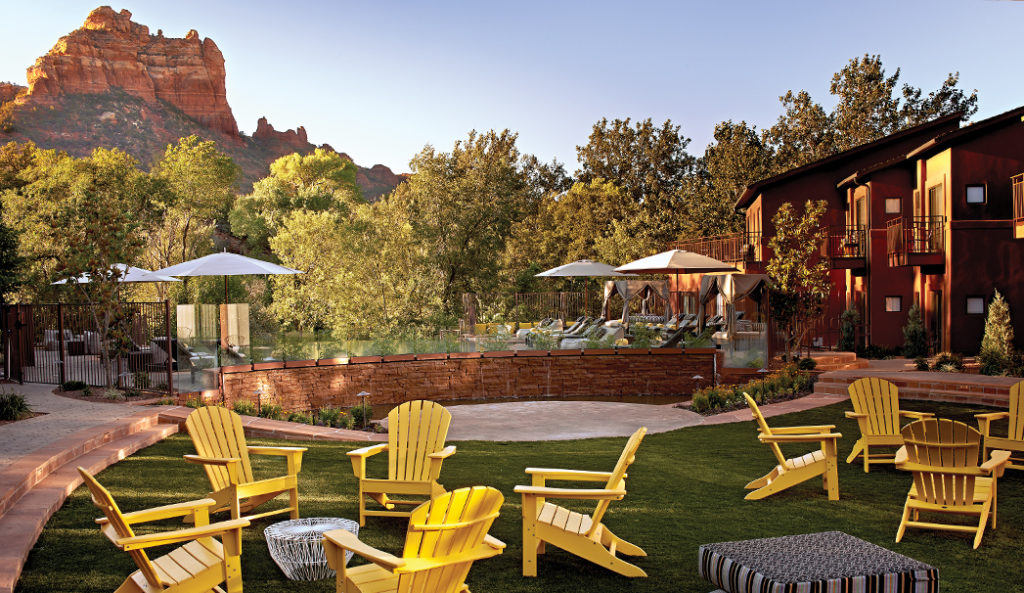
Why did you leave Northern Arizona University after three semesters?
I couldn’t figure out what I wanted to be when I grew up, and everyone kept telling me to declare a major. So instead of continuing school and trying to figure it out, I decided to come home to Sedona and started working at Enchantment Resort. I began as a hostess, moved to the front desk, handled reservations, managed and supervised sales, revenue management and was director of rooms before coming to Amara over a year ago. I gravitated toward and fell in love with hospitality. I never thought that I was going to be the GM of a property one day, but here I am.
Being a woman in the hospitality industry, it must be exciting to know that you are at the forefront of changing times.
Within our ownership, I am one of three female general managers, and Amara Resort is the only property within our portfolio of hotels and resorts that has three women at the helm. We have a female general manager, a female restaurant general manager and a female executive chef. The hospitality industry is more male-driven so the fact that we have three strong females at the helm makes me proud.
As a woman, do you feel like you had a tougher road throughout your career?
I don’t know about a tougher road, but I think it is something ingrained in me since childhood. If you want something, you work hard for it. It’s never been whether you are male or female. Sometimes you have to work extra hard regardless of the situation, and that work ethic has always been instilled in me as I advance my career. I realize that I can’t do it by myself. It’s essential to build a team around you where everyone pulls together. One person is not an expert in everything.
How would you describe yourself?
I am a natural leader, I lead by example, and I will do anything and everything that I ask my employees to do. If I need to roll up my sleeves and help housekeeping, then that’s what I do. We want our guest experiences to be the best that they can be. I am easygoing to a point, but when I need to be firmer or push harder, I am not afraid to do that. I try to find the positive in every situation.
Do you feel that you place added pressure on yourself to succeed?
I do put pressure on myself. I can be competitive, and I like to win. I try to lead by example. I hold myself to a high standard, morally and with integrity. If someone questions my integrity, it gets me fired up because my standards are very high in that regard. I put added pressure on myself growing up. I always wanted to make my parents proud. One of the worst things was to hear my dad say he was disappointed in me. I always ask myself, “Is this something my dad would approve of?” I continue to make the decisions in that regard. I know he would be proud of me.
How do you measure your success?
It’s how fulfilled I feel with my work, my family and my home. It’s more about that than money. It’s not about physical things, because those things come and go. If you have great relationships, loving supportive people around you and continue to make a difference − that is my picture of success.
How do you look at failure?
It’s going to happen, and it sucks when it does. If you don’t go through it, you don’t know what is on the other side. All my experiences − good, bad and indifferent − made me who I am.
Where did you get your drive and determination?
Early on, as I was learning hospitality, I was surrounded by great managers and then having not-so-great managers. I would always take a piece from both − what I enjoyed about a manager’s style and what I didn’t. So, I decided to make sure that I didn’t repeat those mistakes myself. When I started at Enchantment, the president of Enchantment Group, Mark Grenoble, was a mentor to me. We still keep in contact even after he left. I reached out to him and let him know that I applied and got the job at Amara. His support and well wishes were amazing. I watched his daughters take their first steps in the lobby to becoming beautiful adults themselves.
Having a supportive team around you seems crucial. Is that the key to your success?
Absolutely! I praise my team for everything. I’m just along for the ride and if I can help them in any way I can, I will. We are all in this together. It’s one of those cliches − there is no “I” in a team. I don’t approach anything with an ego. It doesn’t get you anywhere. Being positive and kind is going to get you further in life. Going into things without having perceived expectations of gaining a reward, in the end.
Where do you go for advice?
Depending on what it is – my mom, my boyfriend or my coworkers. I have a vast network of individuals depending on the advice I am seeking. I know that I have my dad and grandma watching over me.
What advice do you have for young people today?
Being inquisitive, not taking everything at face value and understanding the whys and hows of the job. These are things that I do. I always try to give an understanding of why something is the way it is. It doesn’t mean we have to do it that way – if there is another way, then I am all for it, as long as we get the results we need.
As a child, what did you want to be when you grew up?
A ballerina! I danced for 18 years, and that is all I wanted to do. However, it didn’t come to fruition. I always enjoyed being creative. Now, I take that creativity and make costumes for myself for Halloween. My mom is a seamstress and taught me to sew at a young age so we would collaborate on ideas and make patterns. I joke and tell her that it’s her fault that I make my costumes because that’s what we did growing up. Looking back at it now, anytime we saw a costume we wanted for Halloween my mom was the first to say, “Ok then, let’s make it.” We had high standards, so the costume had to be just right. My ultimate dream job would be making costumes for Cirque du Soleil.
Do you have a memorable experience that you look back on and smile?
Quite a few! I enjoy watching employees develop, grow and flourish. My goal is to create memories by exceeding expectations. That was the model at Enchantment, and I keep that in mind every day.
SUSAN SCHROEDER
CEO OF GRAND CANYON CONSERVANCY
“Do what you love and love what you do,” are words that ring true for Susan Schroeder. Susan ventured out west on a college field trip to experience the wilderness, and as she explains, she never looked back. The outdoors became her playground. She grew up in Flint, Michigan, and graduated from Utah State University’s College of Natural Resources, a program that is considered one of the best in the country. Every step of the way, she curated her career advancement by doing what she loves to do. It’s a testament to being true to herself and her values. Susan’s leadership skills led her to Northern Arizona University where for 18 years she served in various roles.
Her love for the outdoors is evident in her role as CEO of the Grand Canyon Conservancy where she has worked for the past 10 years. Her mission is to protect and preserve our national treasure for generations to come. Susan has played an integral part in building one of the first fundraising campaigns for the Grand Canyon National Park that will support its programs, trail maintenance, restoration of historic park buildings and other necessities that are essential to the preservation of the park. The Grand Vision Centennial Campaign is close to reaching its goal of $15 million in private funding. Later this year, Susan will be retiring from her role as CEO of the GCC, but we expect we will find her doing something else – outdoors – that she loves.
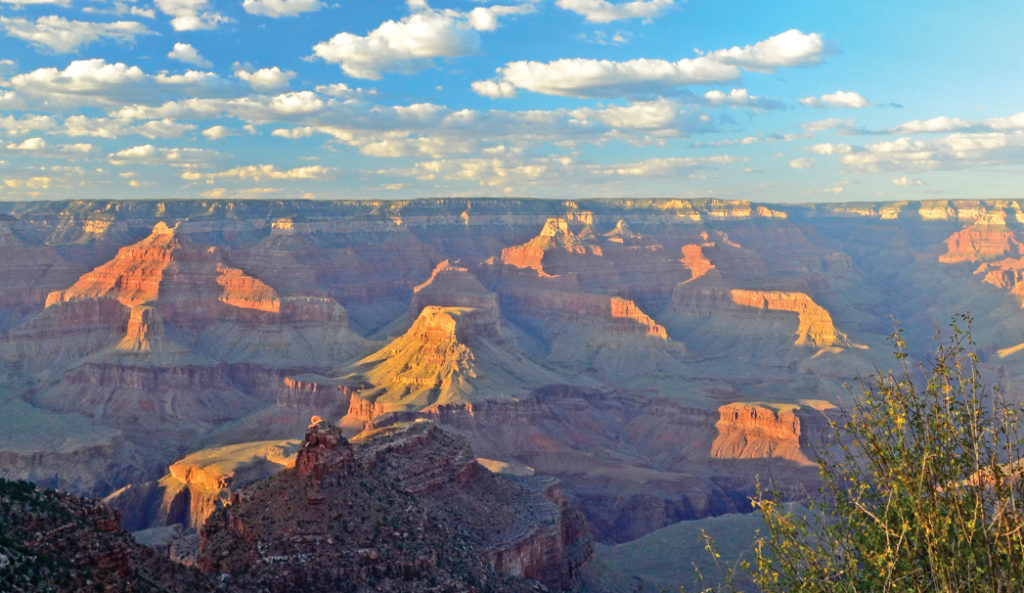
As a child, what did you want to do when you grew up?
I love that question. I had a wonderful family upbringing. At the very beginning my grandmother Schroeder, who was very strong, was a naturalist. She knew all about plants and birds. She would take me out to ‘grandma’s walking road’ in the woods, and we would learn all about the Michigan flowers. It was a very special time. My mother became interested in the same things, and between the two of them, I was predisposed to loving nature and the outdoors. I spent a lot of time outdoors with the family, and I knew whatever I was going to do, it had to be outdoors.
You mentioned you were a ski bum early on in your life. How did you go from that to a successful career?
How did that happen? It was interesting because for me to be a ski bum, I had worked really hard so that I would have enough credit hours and still graduate within four years. I planned for it so that I would be able to take some time off. I took college credits in high school, and I had enough credits when I took the term off to ski in the winter. I didn’t miss a beat, and I still graduated on time.
How did you become CEO of the Grand Canyon Conservancy?
It is a great story. I went on a river rafting trip in 1985, and on that river trip, I fell in love with the Grand Canyon. I was living in Salt Lake City at the time and wondered how I could get closer to the Grand Canyon. It took me a couple years, and in 1988, I moved to Flagstaff, Arizona, to work at Northern Arizona University. Eighteen years later, this opportunity came up for me. I knew that I had to do this. It put all my passions together in terms of nonprofit, organizational development, fundraising and just the love of the land. It was the perfect move for me to become the CEO of the Grand Canyon Conservancy in 2008.
Tell me about the Grand Canyon Conservancy.
It has been around since 1932 and has evolved to fit what the park service needs. We are solely there to help support Grand Canyon National Park. We do this in a lot of different ways: We have educational bookstores and a publishing program that produces books about the Grand Canyon. Those who want to learn about the Grand Canyon on a deeper level rather than walking along the rim or peering in can go on a multiday backpack trip through the field institute.
This career move was a dream come true for you. Was there anything that surprised you about the job that you didn’t anticipate?
Yes! When I took the position in 2008, the plan was to grow a whole new program. Then the recession hit and I didn’t anticipate the impact it would have on us. It slowed us down a bit but made us stronger in the end.
Are you surprised by the choices you made in your career?
What’s a girl from Flint, Michigan, doing at the Grand Canyon Conservancy? How does that happen? I think it is the choices we make going through life. I have been lucky in terms of the places I have worked because they were all about my curiosity and love of learning. I was really happy at Northern Arizona University. I loved my job. I was there for 18 years and was very accomplished. When this position opened up at the Grand Canyon Conservancy, it blended together all my experiences including conservation and organizational development. This job was a very different kind of organization and much smaller. I knew I would have to be entrepreneurial and creative to do some of the things I wanted to do and that was exciting and intimidating at the same time.
Who is your mentor?
There have been a couple notable ones, but one, in particular, was a professor at college in Michigan. He taught a summer course in Wyoming and spent three weeks backpacking in the mountains. I took another class right after and typically there were two instructors, but one was not going to make it because of a family issue. My professor asked me to co-lead this trip. I was 19 years old and taking people out into the wilderness, teaching them rappelling, which I just learned weeks earlier. So I jumped on it. I was leading people older than me and had to inspire and motivate them to complete their task. It taught me how to be persistent and empathetic towards people.
Looking back on your career, is there anything that you would change if you could?
Probably taking more advantage of opportunities. That’s a great question because there have been times where I think, why didn’t I do that? What would I have done differently? I would have taken more risks. I took physical risks. I was outdoorsy, skied, hiked and I took risks in those areas but speaking out at meetings, or doing more public speaking, terrified me when I was younger. I should have put myself out there more.
Do you fear failure or do you just jump right in?
When there are opportunities that come up, you have to take a risk. I reflect, what is the worst that could happen? Give it your all, try and make it work and if it works you are better for it and if it doesn’t, Oh well! That’s what I try to remind myself. Nothing ventured; nothing gained, I love that phrase, and it’s been one of my mottos – just go for it!
Do you think you have a good handle on what life is all about?
I do think there are many good things about aging. There is this collection of experiences, and you don’t have to prove anything anymore. You become more self-assured. You are comfortable in your own skin.
Knowing what you know now about your life, how will you proceed in the future?
I am so excited about my future right now because I am in transition. I will be handing over the CEO reins to a wonderful person, Teresa McMullen, who is my successor on July 1st. I get to stay and work on special projects through the end of the year. I am excited about that transition. I am very invested in the Grand Canyon Conservancy, and I just love what I do, so how do you gracefully change and let go? What’s in store for the future? I plan to travel more with my husband and live my best life ever.
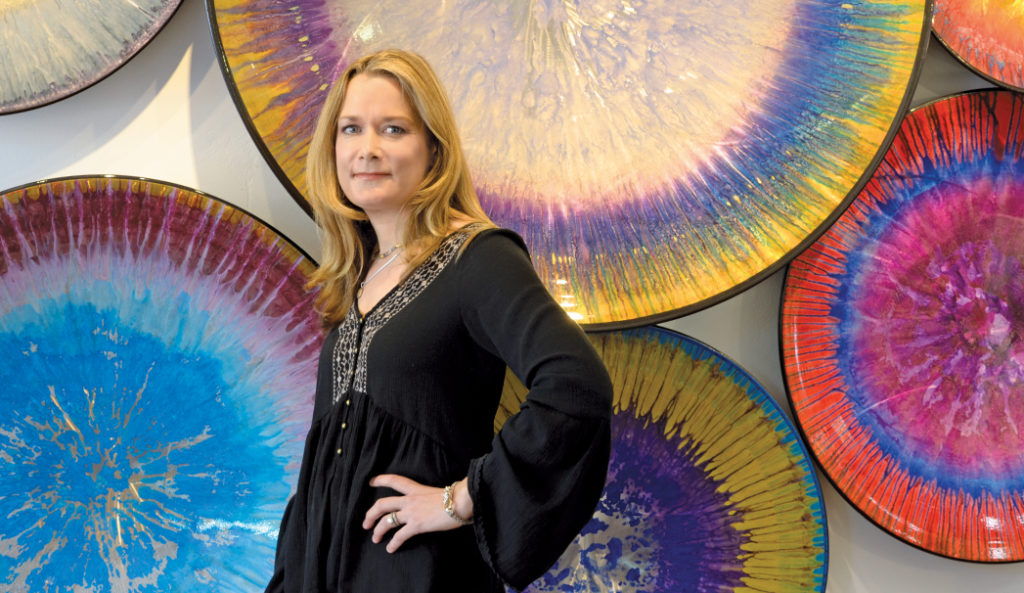
RENEE TAYLOR
RENEE TAYLOR GALLERY
Renee Taylor is a dynamic entrepreneur. She and her husband, Mike, own three successful art galleries: Renee Taylor Gallery, Vue Gallery and Renee Taylor Jewelry in Tlaquepaque Arts and Crafts Village in Sedona. Originally, owning a gallery was something she thought she would do when she retired. Born and raised in Anchorage, Alaska, Renee attended Pacific Lutheran University in Tacoma, Washington, and continued on to graduate school at the University of Arizona where she studied hydrogeology. After deciding that this was not the career path she intended, she and her husband decided to take a risk and venture into the art world.
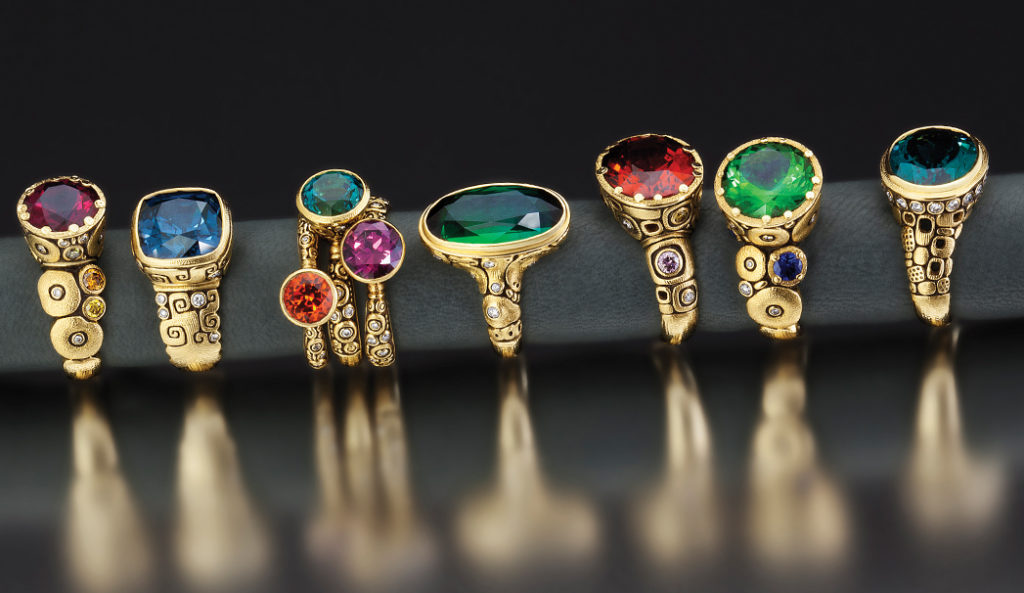
What was life like growing up in Alaska?
When I was growing up, I learned to find my way. It was a harder life, I didn’t have much and my parents didn’t want to make things easy. They felt I would be better off if I learned things on my own. I am who I am because of it. I wanted to better my life, and I knew it had to be me to do it – no one was going to do it for me.
What was your first job experience out in the real world?
I wanted to gain experience, so I mailed 45 resumes to every engineering firm in the city. I got one response. I interviewed and was hired to work in a construction materials testing lab. I was pushed hard the first two weeks and later found out this wasn’t normal. My immediate boss was convinced his boss had hired me to spite him so he wanted to prove that I couldn’t do the job. I could see why he would have thought that since I was the first female hired in the entire company to do materials testing, and the youngest at 19. Within two weeks my boss confessed that he was being a jerk to me on purpose and was so impressed that I hung in there. He promoted me to lab manager. He admitted that he never believed a woman could work in a physically demanding job like that and I made him a feminist. I will always remember that.
You were working in a man’s world. How did that make you feel as a woman?
I loved that job and kept it all through college. Men would treat me differently, and one supervisor demanded that I leave because I was distracting his male employees. As a born–again feminist, that made my boss extremely mad. We worked 70-plus hours during the height of the construction season. It was physically demanding, but I loved that. I was training for college soccer and considered it part of my daily workout. I was paid much less than anyone else even though I was above the other lab technicians. At the time, I didn’t know better and was thankful to have a job and to get the massive overtime, but looking back, I should have spoken up.
What did you do after graduating from college?
After I finished undergraduate school, I went to graduate school to study hydrogeology in the department of engineering at the University of Arizona. That is where I met my husband, Mike. While Mike got his law degree, I worked in the hydrogeology field, and although I loved the learning side, I didn’t enjoy working as a hydrogeologist. I needed to have a connection with people and be my own boss.
What was your dream job?
I had always loved art, and my ultimate dream since I was a young child was to own my own gallery. I didn’t think that you could make money owning a gallery and it was something you did after you retired from your real job. I am not sure what changed my mind about it, but after my husband finished law school, we both needed a change, so it was the perfect time to dive into something else.
Has gallery ownership exceeded your expectations?
In the early days, we opened and closed about 20 locations before we landed where we are now. I never believed that anything we did was a failure since we learned so much from every experience. A successful business doesn’t happen overnight.
Are all three of your galleries located in Tlaquepaque Arts & Crafts Village?
Yes! We love Tlaquepaque! We wouldn’t be anywhere else. When we had the opportunity to open there in 2005, we jumped at the chance. Our customers love wandering around, and they come in happy. There is magic about the place that puts everyone in a good mood.
You have built a small empire with your galleries in Sedona. Do you feel that you have been successful?
I have to remind myself that I have accomplished something because I don’t inherently think that way. I am always thinking about what I am not doing, or not doing well enough or doing right. I am always looking at where I need to improve instead of taking a step back and looking at what I have done. It’s not something that comes naturally.
Do you find any challenges associated with being a woman in the jewelry industry?
No, it’s different. My name is on the gallery, I sign the checks, we are known in the industry and people want to do business with us. Having your name in the forefront puts you in a power position.
What is it that you love about your work?
I love art. Art is first and foremost my passion. I am amazed by what artists can create. I appreciate good artwork. I also love jewelry − I see it as pieces of art that you wear. I love selling it. I love
the happiness it gives people.
Who are the women that you admire most?
There are a few, but one who stands out is Colleen Hacker. She is incredibly inspirational. She was my soccer coach for one year and has this uncanny ability to take any team or individual and make them perform better than they thought possible. She teaches you how to excel in life. She was on the coaching staff of the U.S. Women’s Soccer team that won the World Cup, the USA Hockey team (reigning world champs) and others. Her resume is too long to list. I also love Amelia Earhart because she was a go-getter. She didn’t let stereotypes hold her back. Libby Riddles was the first woman to win the Iditarod Trail Sled Dog Race. Susan Butcher won it four times. Anyone who won the Iditarod in Alaska is a local hero. To have two women dominate like this for so many years was extremely inspirational as a young child to see. It left an impression on me.
What advice would you impart on young adults today?
Just don’t give up! Too many people give up, and they give up too fast. Keep trying. Keep learning. Look at the positives and take what has gone wrong and turn it into something positive.
You have three young daughters. What are some words of wisdom that you want to share with them?
I want them to have a deep empathy towards others and to know that they are okay just the way they are. I want them to be confident in their abilities and it’s okay not to succeed but to always try. It’s important that they do what they love. I will make sure that they never give up. Too many people give up on their dreams before they have given it a real shot.
